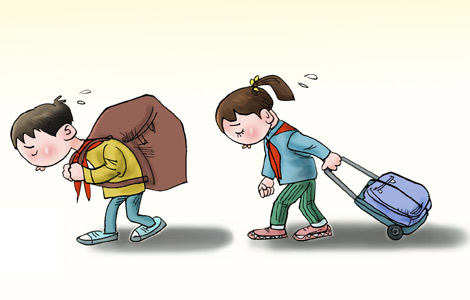Source: Reuters // Reuters
* China urbanisation ratio above 51 pct, slightly higher than world average
* China labour costs to rise steadily as supply falls, analysts say (Add background, China economist view)
By Zhou Xin and Koh Gui Qing
BEIJING, Jan 17 (Reuters) - More people lived in China's cities than in the countryside last year for the first time in history, a milestone that also points to labour supply strains in the
world's No. 2 economy that could redraw the global manufacturing landscape.
Just over 51 percent of the 1.35 billion mainland Chinese lived in towns and cities at the end of 2011, China's National Bureau of Statistics said on Tuesday, crossing the halfway mark after
three decades of rapid growth in the world's most populous nation.
Factories along the Pearl River Delta boomed in the same period as hundreds of millions headed to cities in search of jobs, helping to keep costs low. But an expert on development in the delta
said workers are now increasingly demanding higher wages and better terms as urban property and living costs soar.
"It's a clear signal to all investors -- China's cheap labour is fading into the past and will never be back," said Cheng Jiansan, a professor with the Guangdong Academy of Social Sciences, the
top think-tank in China's export hub.
"As far as I know, many plants here are relocating to places like Vietnam and Cambodia -- simply for cheap labour."
China became the factory to the world since economic liberalisation began in the early 1980s, exporting goods such as high-end running shoes and television sets as low-cost labour spurred
manufacturers around the globe to setup operations mainly in special economic zones along the southern coast.
In 2011, China's rural population fell 14.6 million, equal to the number of people in Cambodia, data showed.
But the rate of urbanisation has slowed, dragging on labour supply, even though the massive shift of people will keep driving China's economy for years to come.
A rapidly ageing Chinese population further reduces the labour pool with the number of people over 65 at nearly 123 million, almost equal to Japan's population.
Ma Jiantang, the statistics agency head, said falling labour supply underpinned a forecast by China for 7 percent economic growth between 2011 and 2015, well below frequent double-digit annual
growth rates for much of the past decade.
China's economy grew at its weakest pace in 2-1/2 years in the latest quarter to 8.9 percent, data released on Tuesday showed.
But there is debate among analysts about whether the country is near or crossing the Lewis turning point, a theory that wages in a developing nation start surging once there is a shortage in
surplus rural labour.
Globally, about 51 percent of the world's 7 billion people live in cities, the United Nations says, with developing countries generally more rural than rich countries. In India, the world's
second-most populous nation, only 30 percent live in cities while 82 percent of Americans are urbanites.
"It's a milestone in China's urbanisation, but that's too early to say that China's labour supply is drying up," Su Hainan, the deputy head of China Association for Labour Studies, a
Beijing-based think-tank.
"China is still in the middle of urbanisation, and that means a lot of people have to move into cities."
Average Chinese salaries are already rising, albeit from low levels. Per capita urban disposable income rose 14 percent to 21,810 yuan ($3,500) in 2011 from a year ago, while per capita rural
income rose 18 percent, although still only to an annual 6,977 yuan ($1,105).
But the income gap between those working in cities and the country is hard to verify as China does not publish a nation-wide "Gini Coefficient", a widely-used measure for wealth divides, likely
because of the difficulty of getting true income data on high-income urban residents.
But the Gini index for rural China, which is calculated , stood at 0.4 at the end of 2011, suggesting a middle-of-the-road income divide with 1 being most severe and 0 indicating equal
distribution of wealth.
However, Su said that even a relatively accommodative labour supply from rural areas is not going to prevent factory and other wages from rising.
"Labour supply will continue to be abundant, but workers will be more demanding in terms of salaries and other benefits."
($1 = 6.3165 Chinese yuan)
(Reporting by Zhou Xin and Koh Gui Qing Editing by Nick Edwards; Ken Wills and Ed Lane)
 DISCUSSION
GROUP
DISCUSSION
GROUP

















![Sun Minghua, a rural resident of Bozhou in East China's Anhui province, checks out withering wheat seedlings on his farm on Thursday. [Photo/China Daily]](https://image.jimcdn.com/app/cms/image/transf/none/path/s7ebc55022d951a36/image/ibc90b7c953a9978c/version/1296307016/image.jpg)




![This file photo shows a submersible under construction at an undisclosed location. [Photo/China Daily]](https://image.jimcdn.com/app/cms/image/transf/none/path/s7ebc55022d951a36/image/i72fbb4145062af72/version/1284329607/image.jpg)





